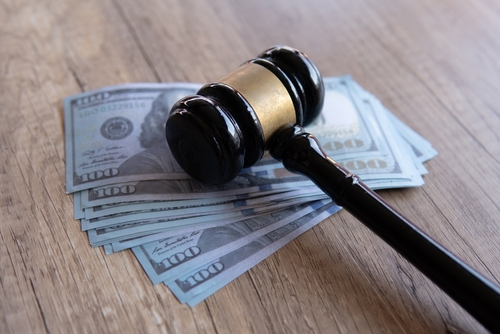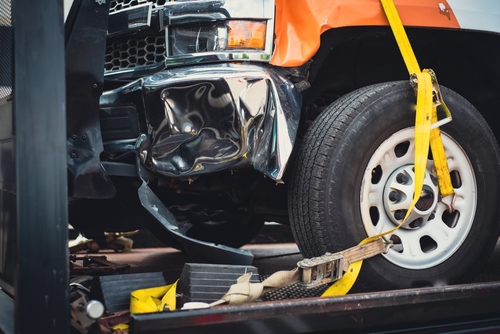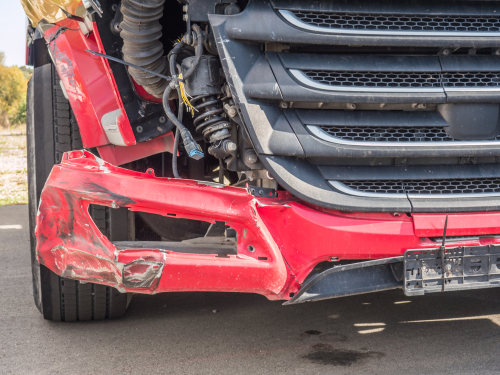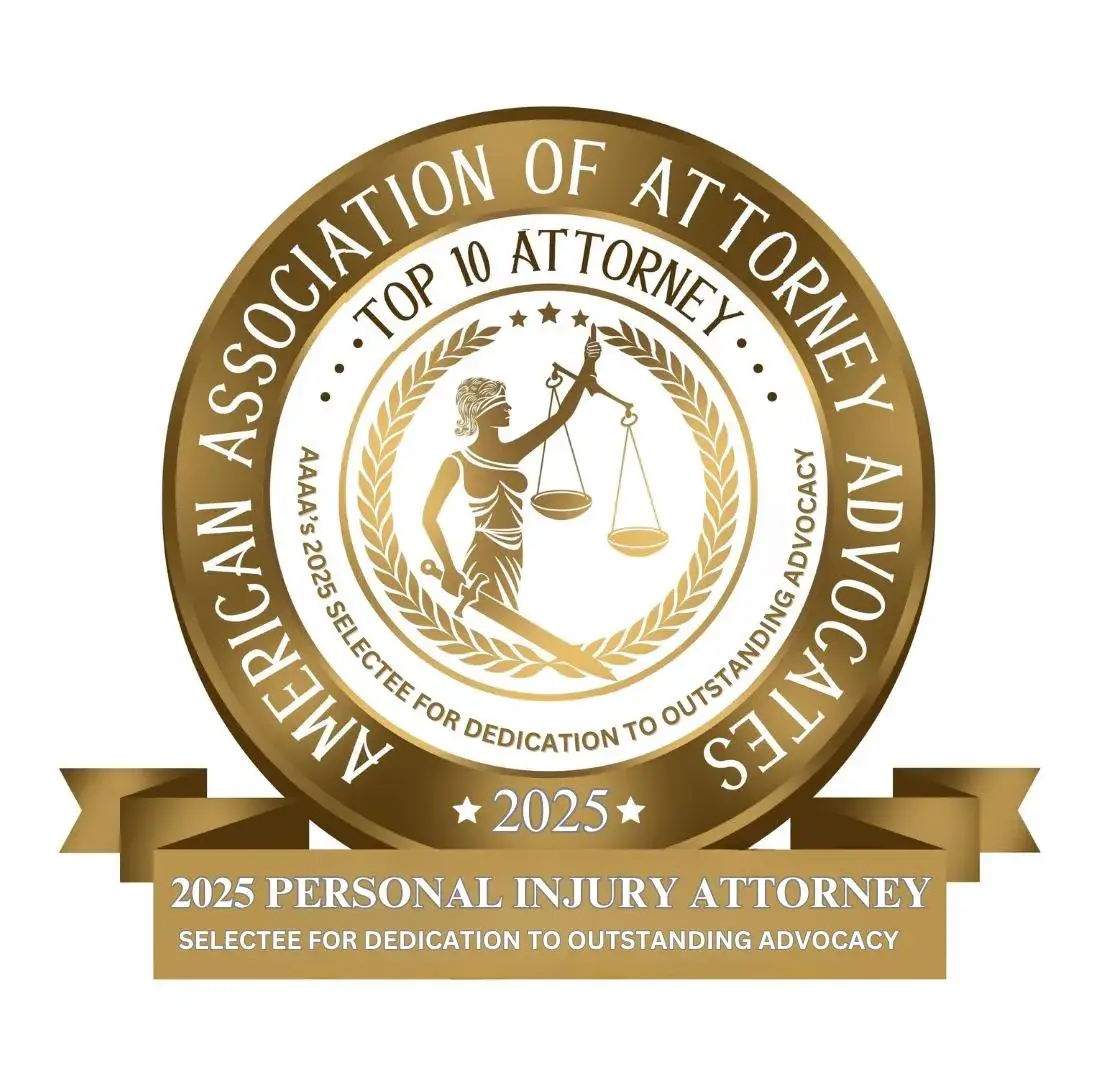
What Compensation Is Available After a Truck Accident in New Jersey?
After a truck collision in New Jersey, you may pursue financial compensation—known as damages—for a wide range of losses. These damages are generally divided into three categories:
- Economic Damages to cover your direct financial losses like medical bills and lost income.
- Non-Economic Damages to compensate for personal losses like pain and suffering.
- In rare cases, Punitive Damages intended to punish the responsible party for extreme misconduct.
Recovering these damages involves an involved process governed by state and federal trucking regulations and New Jersey’s specific negligence laws. Trucking companies and their insurers have teams dedicated to investigating these incidents, and their business interests require them to manage claim payouts. Our role is to ensure you have a clear understanding of what you are owed and to build a comprehensive case for the full compensation available under the law. A Fort Lee truck accident lawyer can guide you through each step, protecting your rights and pursuing every dollar you deserve.
If you have questions about your situation after a truck accident in Bergen County or anywhere in New Jersey, call Maggiano, DiGirolamo & Lizzi, P.C. for a clear explanation of your options at (201) 585-9111.
Key Takeaways for New Jersey Truck Accident Damages
- You may be entitled to compensation for economic, non-economic, and punitive damages. These categories cover everything from direct financial losses, like medical bills and lost income, to the personal cost of pain and suffering.
- New Jersey’s negligence rule may reduce your award if you are partially at fault. Under the state’s modified comparative negligence law, you may recover damages as long as your share of fault is 50% or less, though your final compensation is reduced by your percentage of fault.
- A two-year deadline applies to most truck accident claims. The statute of limitations requires you to file a lawsuit within two years of the accident, making it essential to act promptly to protect your rights.
What Are Economic Damages? Rebuilding Your Financial Stability
Economic damages are designed to make you financially “whole” again by providing direct compensation for every verifiable dollar you have lost or will lose due to the collision. Our firm meticulously documents these losses to build a clear picture of the financial support you need. Compensation insurance requirements under both federal and New Jersey law set minimum coverage levels for commercial trucks, ensuring there is sufficient insurance to pay these damages when a trucking company or driver is found liable.
Past and Future Medical Expenses
This includes:
- Hospital Stays & Surgical Procedures: The full cost of any operations or inpatient care.
- Rehabilitation & Therapy: Costs for physical, occupational, or vocational therapy to regain function.
- Medication & Medical Devices: Wheelchairs, crutches, prescription drugs, and other necessary equipment.
- Future Care Needs: For injuries like a traumatic brain injury or spinal cord injury, we consult with life-care planning experts to project the cost of long-term care, ensuring you are not left with unexpected expenses years from now.
Lost Wages and Diminished Earning Capacity
This covers the income you’ve lost and the income you will lose.
- Lost Paychecks: We calculate the exact income, bonuses, and benefits you’ve missed while out of work.
- Loss of Future Income: If your injuries prevent you from returning to your old job or working at the same capacity, we demonstrate the impact on your long-term earning potential. Simply put, this compensates you for the career trajectory the accident took from you.
Property Damage
This includes:
- Vehicle Repair or Replacement: The cost to repair your vehicle to its pre-accident condition or, if it’s a total loss, its fair market value.
- Diminished Value: A car that has been in a serious accident is worth less than one that hasn’t, even after repairs. We will pursue a claim for this loss in value.
- Other Property: Compensation for any personal items damaged in the crash, such as laptops or car seats.
What Are Non-Economic Damages? Acknowledging the Human Cost
The true impact of a truck collision on the New Jersey Turnpike or Route 4 goes far beyond bills. It disrupts your life, causes physical pain, and leaves emotional scars.
The constant pain from your injuries makes it impossible to sleep, play with your children, or enjoy the activities that once defined you. The anxiety of getting back behind the wheel or the stress of navigating a changed life is just as debilitating as the physical injuries themselves. These are real losses, even if they don’t come with a price tag. Hire a truck accident lawyer in New Jersey to pursue compensation for these non-economic damages and protect your rights.
New Jersey law recognizes that these personal losses deserve compensation. Non-economic damages are designed to acknowledge the human cost of the collision. Because these losses are subjective, they are more difficult to calculate, but they are an essential part of a fair recovery.
Pain and Suffering
This compensates for the physical pain, discomfort, and general suffering you endure because of your injuries. This is a broad category that accounts for the day-to-day reality of living with the physical consequences of the crash.
Emotional Distress
A serious collision is a traumatic event. This category addresses the psychological impact, which may include:
- Anxiety or depression.
- Post-traumatic stress disorder (PTSD).
- Sleep disturbances and fear of driving.
Loss of Enjoyment of Life
This acknowledges that your injuries may prevent you from participating in hobbies, social activities, or daily routines that brought you joy before the accident. It recognizes that your quality of life has been diminished.
Loss of Consortium
This is a specific claim for the spouse of an injured victim. It compensates for the loss of companionship, affection, and support that the marital relationship provided before the accident turned your family life upside down.
How Are These Damages Calculated?
There is no simple formula, but two common methods are used:
- The Multiplier Method: An attorney may argue that your non-economic damages should be a multiple (e.g., 1.5 to 5 times) of your economic damages, with the multiplier increasing based on the severity of your injuries.
- The “Per Diem” Method: This method suggests a certain dollar amount for each day you have suffered and will continue to suffer from your injuries.
How Does New Jersey’s “Comparative Negligence” Rule Affect Your Claim?
After a crash, it is common for the other party’s insurer to conduct a thorough investigation to see if your actions contributed to the incident. You may worry that if you are found even slightly at fault, you will not receive any compensation. In New Jersey, this is not necessarily true. Take after a truck crash the essential legal steps early to protect your claim and secure fair compensation.
New Jersey uses a legal concept called the “modified comparative negligence” rule.
Simply put, you may still recover damages as long as you are not found to be more responsible for the accident than the other parties involved (your percentage of fault must be 50% or less).
- How it works: A court or jury will assign a percentage of fault to each party. If you are found partially at fault for the collision, your total damage award will be reduced by your percentage of fault.
- The 51% Bar: However, if you are found to be 51% or more at fault, you are barred from recovering any damages from the other party under New Jersey law (N.J.S.A. 2A:15-5.1).
Trucking companies and their insurers understand this rule well. It is a standard part of their process to look for any evidence that might shift a percentage of blame onto you. Our work involves conducting our own independent investigation to protect you from being assigned an unfair portion of the fault.
Are Punitive Damages Possible in a Truck Accident Case?

Economic and non-economic damages are known as compensatory damages—their goal is to compensate you for your losses. Punitive damages are different.
Their Purpose is Punishment
Punitive damages are awarded in rare cases not to compensate the victim, but to punish the defendant for extremely reckless or malicious behavior and to deter others from similar conduct. You need to know how these damages work and when they might apply in a New Jersey truck accident case.
When Might They Apply?
Ordinary carelessness is not enough. To secure punitive damages, we would need to show “clear and convincing evidence” that the defendant acted with malice or a willful and wanton disregard for the safety of others.
- Examples could include: a trucking company knowingly falsifying maintenance logs for its fleet, or a company encouraging its drivers to violate federal hours-of-service safety rules to meet deadlines.
Limits in New Jersey
The New Jersey Punitive Damages Act limits these awards to five times the amount of your compensatory damages or $350,000, whichever is greater.
How Are Truck Accident Settlements Paid?
Who Pays the Settlement?
In most cases, the trucking company’s insurance carrier is the one issuing the payment. This may be a commercial insurer that covers the trucking company, the driver, or both. If multiple parties were found liable (for example, a maintenance provider or cargo company), the settlement might involve contributions from more than one insurer.
What Is the Payment Timeline?
Once a settlement is finalized and both sides have signed a release of liability, the insurance company typically has a limited window to issue payment. In New Jersey, this is often within 30 days. However, the timeline can vary depending on the complexity of the case and whether any liens or legal obligations must be addressed before funds are released.
Delays can happen if:
- The release form is not signed and returned promptly
- There are outstanding medical liens or bills that must be resolved
- Multiple parties or insurers are contributing to the settlement
We work to ensure that every step of this process moves forward without unnecessary hold-ups.
How Are Settlement Funds Distributed?
Settlement proceeds are usually distributed in the following order:
- Medical Liens and Outstanding Bills: If your health insurance, a hospital, or another medical provider has a legal claim on your settlement (known as a lien), these must be paid first. We negotiate with lienholders to reduce these amounts whenever possible.
- Legal Fees and Case Costs: If your attorney is working on a contingency fee agreement, their legal fee will be taken as a percentage of the settlement. Any case-related expenses advanced by the law firm, such as expert witness fees, court filing costs, or accident reconstruction, are also reimbursed from the settlement at this stage.
- You Receive the Remainder: After liens, legal fees, and expenses are paid, the remaining balance is issued to you. This is your net recovery.
Lump Sum vs. Structured Settlements
In most truck accident cases, the settlement is paid in a single lump sum. This means you receive one check for the full amount of your net recovery.
However, in cases involving severe or permanent injuries, especially those affecting minors or individuals with long-term care needs, a structured settlement may be used. This involves receiving the settlement in scheduled payments over time, usually with the help of a third-party annuity company. Causes of truck accidents often influence the size and structure of these settlements, as factors like driver fatigue or poor maintenance can increase the long-term compensation required.
Structured settlements may offer tax advantages or long-term financial stability but are not appropriate in every case. We advise our clients on whether this option makes sense for their situation.
What About Taxes?
Generally, compensation for physical injuries and medical expenses is not considered taxable income. However, certain portions of a settlement, such as punitive damages or interest on the settlement amount, may be taxable.
We recommend speaking with a tax professional to understand the implications of your specific settlement. We also coordinate with financial advisors when needed, especially in high-value or structured settlements. After a truck accident, these financial planning steps help protect your recovery and provide stability as you move forward.
Frequently Asked Questions About Truck Accident Damages
How long do I have to file a truck accident claim in New Jersey?
In most cases, the statute of limitations for personal injury claims in New Jersey is two years from the date of the accident. However, if a government entity is involved, the deadline is much shorter.
Do I still have a case if the trucking company's insurance already offered me a settlement?
Yes. An early offer from an insurer is typically an attempt to settle the claim for less than its full value. We advise understanding the full extent of your damages before accepting any offer.
My loved one was tragically killed in a truck accident. Is my family able to recover damages?
Yes. In cases of a fatal truck accident, eligible family members may be able to file a wrongful death lawsuit to recover damages for their losses, including lost financial support and the loss of companionship and guidance.
What makes truck accidents different from car accidents?
Truck accident claims are more involved due to multiple potentially liable parties (driver, trucking company, cargo loader), extensive Federal Motor Carrier Safety Regulations, and the catastrophic nature of the injuries.
I live in Fort Lee and English isn't my first language. Will you still help me?
Absolutely. Our firm has resources to assist clients from diverse backgrounds, including the Korean and Hispanic communities in Bergen County. We will ensure you understand every step of the process.
Take the First Step in Understanding The True Value of Your Claim

Worrying about how you will prove your losses or being assigned unfair blame should not stop you from seeking the compensation you need to recover.
The system for recovering damages after a truck collision is difficult, but it is designed to provide a path to rebuild what was lost. The most important step you can take is to understand your rights and the full value of your claim before making any decisions. We are here to provide that clarity.
Let our team at Maggiano, DiGirolamo & Lizzi, P.C. handle the legal process so you can focus on your health and your family. For a straightforward conversation about your case, call us today at (201) 585-9111.



















